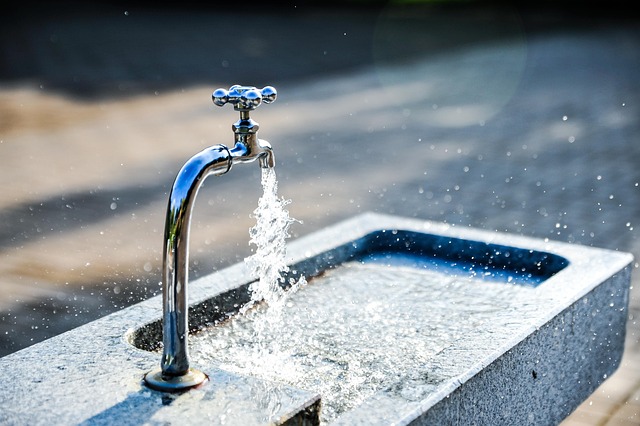Start your eco-upgrade in Switzerland
Bottled water is expensive, inconvenient and bad for the planet. More and more families across Switzerland are making the switch to home water filtration systems. One high-quality filter can replace hundreds of single-use plastic bottles — start your eco-upgrade today and enjoy clean, great-tasting water without the cost or waste.

Why are Swiss households moving away from bottled water?
The transition from bottled water to filtered tap water in Swiss homes is driven by several factors. Firstly, there’s an increasing awareness of the environmental impact of plastic bottles. Switzerland, despite its efficient recycling systems, still faces challenges in managing plastic waste. By switching to filtered tap water, households significantly reduce their plastic consumption, aligning with the country’s sustainability goals.
Moreover, Swiss tap water is already of excellent quality, often surpassing the standards of bottled water. This high-quality foundation makes the switch to filtered tap water a logical and straightforward choice for many families. The convenience of having clean, great-tasting water directly from the tap, without the need to purchase, carry, and store heavy bottles, is another compelling reason for this shift.
What types of water filtration systems work best in Switzerland?
In Switzerland, several types of water filtration systems have proven effective, catering to different household needs and preferences. The most popular options include:
-
Activated Carbon Filters: These are excellent for removing chlorine, improving taste and odor, and reducing certain contaminants.
-
Reverse Osmosis Systems: Ideal for those seeking the highest level of filtration, these systems can remove a wide range of contaminants, including heavy metals and microorganisms.
-
UV Purification Systems: These are effective against bacteria and viruses, offering an additional layer of protection for those concerned about microbiological contamination.
-
Pitcher Filters: A simple and cost-effective solution, these are popular among smaller households or for those just starting their eco-upgrade journey.
-
Under-Sink Filters: These provide filtered water directly from a dedicated tap, offering convenience without cluttering counter space.
The choice of system often depends on factors such as water quality in specific regions, household size, and personal preferences regarding taste and mineral content.
How much can you save by switching to filtered water?
The financial benefits of switching to filtered water in Switzerland can be substantial. While the initial investment in a filtration system may seem significant, the long-term savings are impressive. Let’s break down the potential cost savings:
| Expense Type | Bottled Water (Annual) | Filtered Water (Annual) |
|---|---|---|
| Purchase Cost | CHF 500 - 1000 | CHF 50 - 200 |
| Filter Replacement | N/A | CHF 50 - 150 |
| Energy (Cooling) | CHF 20 - 50 | Negligible |
| Total | CHF 520 - 1050 | CHF 100 - 350 |
Prices, rates, or cost estimates mentioned in this article are based on the latest available information but may change over time. Independent research is advised before making financial decisions.
As the table illustrates, a family can save between CHF 170 to CHF 950 annually by switching to filtered water. The exact savings depend on the chosen filtration system and previous bottled water consumption habits.
What are the environmental benefits of using water filters in Switzerland?
The environmental impact of switching to filtered water is significant. Switzerland, despite its strong recycling programs, still faces challenges with plastic waste management. By using water filters, households can dramatically reduce their plastic bottle consumption. A single high-quality filter can replace hundreds of single-use plastic bottles, significantly decreasing plastic waste and the carbon footprint associated with bottled water production and transportation.
Furthermore, the energy required to produce and transport bottled water is considerably higher than that needed for filter maintenance. This shift contributes to reduced greenhouse gas emissions and aligns with Switzerland’s environmental policies and goals for sustainable living.
How do water filtration systems improve water quality in Swiss homes?
While Swiss tap water is generally of high quality, filtration systems can further enhance its purity and taste. These systems are designed to remove trace contaminants that may affect water quality, such as:
-
Chlorine and its by-products, which can affect taste and odor
-
Heavy metals like lead, which may leach from older plumbing systems
-
Microplastics, an emerging concern in water sources worldwide
-
Pesticides and pharmaceutical residues, which can be present in trace amounts
By addressing these potential contaminants, filtration systems ensure that Swiss households enjoy the purest and safest water possible, often exceeding the quality of bottled water.
What should you consider when choosing a water filtration system in Switzerland?
When selecting a water filtration system for your Swiss home, several factors should be taken into account:
-
Water Quality: Have your tap water tested to understand which contaminants, if any, need to be addressed.
-
Household Size: Larger families may benefit from whole-house systems or higher-capacity filters.
-
Installation Requirements: Consider whether you prefer a simple countertop solution or are willing to invest in an under-sink or whole-house system.
-
Maintenance Needs: Factor in the frequency and cost of filter replacements.
-
Certification: Look for systems certified by Swiss or European standards to ensure effectiveness and safety.
-
Mineral Content: Some systems, like reverse osmosis, remove beneficial minerals. Consider if you need a system that retains or adds back these minerals.
By carefully considering these factors, you can choose a filtration system that best meets your household’s needs and contributes to your eco-upgrade journey in Switzerland.
The shift towards water filtration systems in Swiss households represents a significant step in environmental consciousness and practical living. By making this switch, families not only contribute to reducing plastic waste and energy consumption but also enjoy the convenience and cost-effectiveness of having clean, great-tasting water at their fingertips. As Switzerland continues to lead in environmental initiatives, the adoption of home water filtration systems stands as a testament to the country’s commitment to sustainability at both the national and household levels.




